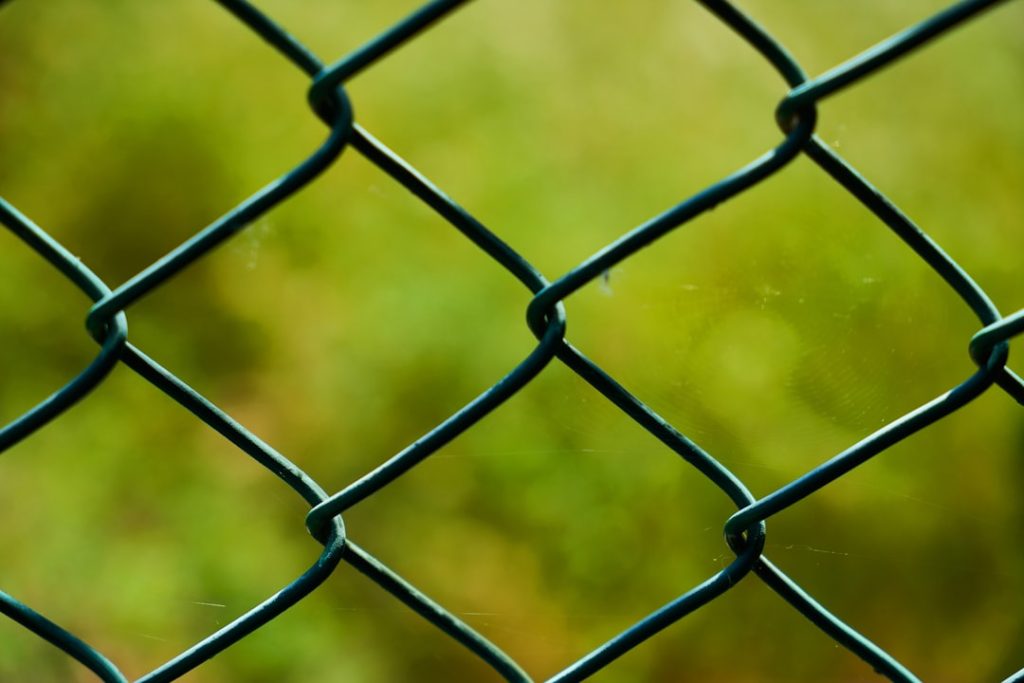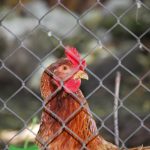Chickens exhibit innate curiosity and social behavior, with a strong foraging instinct. They are prone to being easily startled and may display skittish behavior around unfamiliar objects or potential predators. Comprehending these behavioral traits is essential for effective chicken protection.
By recognizing their natural instincts, chicken owners can better anticipate and address potential safety concerns. The exploratory nature of chickens leads them to investigate their environment and peck at various objects. This behavior can inadvertently expose them to danger, such as venturing into areas where predators may be present.
Furthermore, chickens are known for their easily frightened disposition, which can result in panic responses and scattering, increasing their vulnerability to predators. Understanding these characteristics enables chicken keepers to implement appropriate safety measures, including the installation of physical barriers and the use of natural deterrents to mitigate predator risks.
Table of Contents
- 1 Creating Physical Barriers
- 2 Using Natural Deterrents
- 3 Implementing Repellents
- 4 Training Your Chickens
- 5 Providing Alternative Areas for Foraging
- 6 Seeking Professional Help
- 7 FAQs
- 7.1 What are some natural ways to keep chickens out of flower beds?
- 7.2 Are there any commercial products available to keep chickens out of flower beds?
- 7.3 Why is it important to keep chickens out of flower beds?
- 7.4 What are some common plants that chickens tend to avoid?
- 7.5 How can I train my chickens to stay out of the flower beds?
Key Takeaways
- Chickens are naturally curious and will explore their surroundings, so understanding their behavior is key to preventing them from entering unwanted areas.
- Creating physical barriers such as fences and netting can effectively keep chickens out of specific areas.
- Using natural deterrents like predator decoys, motion-activated sprinklers, and reflective objects can help discourage chickens from entering certain spaces.
- Implementing repellents such as citrus peels, garlic, and hot pepper spray can also be effective in keeping chickens away from unwanted areas.
- Training your chickens to respond to verbal commands and using positive reinforcement can help prevent them from entering restricted areas.
Creating Physical Barriers
Creating a Secure Perimeter
One effective way to protect your chickens from predators is to create physical barriers around their coop and foraging areas. This can include installing fencing around the perimeter of the coop and using wire mesh to cover any openings or gaps that predators could use to gain access. Additionally, consider using hardware cloth buried around the perimeter of the coop to prevent predators from digging underneath the fence.
Securing the Coop Itself
Another important aspect of creating physical barriers is ensuring that the coop itself is secure. This means using sturdy materials for the construction of the coop and making sure that all doors and windows are securely latched.
Regular Maintenance and Inspection
It’s also important to regularly inspect the coop for any signs of wear and tear, such as holes or weak spots in the structure, and promptly repair them to prevent predators from gaining access.
Using Natural Deterrents

In addition to physical barriers, natural deterrents can also be effective in keeping predators away from your chickens. One common natural deterrent is the use of predator urine or feces, which can be purchased from garden supply stores or online. By strategically placing these deterrents around the perimeter of the coop and foraging areas, you can create a scent barrier that will deter predators from approaching.
Another natural deterrent is the use of predator decoys, such as fake owls or hawks, which can be placed in and around the coop to scare off potential threats. Additionally, consider planting thorny bushes or shrubs around the perimeter of the coop, as these can create a physical barrier that predators will be reluctant to navigate through.
Implementing Repellents
In addition to physical barriers and natural deterrents, there are also a variety of commercial repellents available that can help protect your chickens from predators. These repellents often contain natural ingredients such as garlic, peppermint, or citronella, which are known to repel predators such as raccoons, foxes, and coyotes. These repellents can be sprayed around the perimeter of the coop and foraging areas to create a scent barrier that will deter predators from approaching.
Another option is to use motion-activated sprinklers or lights, which can startle predators and drive them away from the area. These devices can be particularly effective at night when predators are most active. Additionally, consider using sound deterrents, such as ultrasonic devices that emit high-frequency sounds that are unpleasant to predators but inaudible to humans and chickens.
Training Your Chickens
While it may seem counterintuitive, training your chickens can also be an effective way to protect them from predators. By teaching your chickens to come when called, you can quickly gather them into the safety of the coop if you spot a potential threat. This can be done by consistently calling your chickens at feeding time and rewarding them with treats when they come to you.
Another aspect of training your chickens is teaching them to recognize and respond to danger signals. For example, you can use a specific sound or signal to alert your chickens to potential threats, such as the presence of a predator. By consistently using this signal in conjunction with providing a safe area for your chickens to retreat to, you can help them learn to recognize and respond to danger.
Providing Alternative Areas for Foraging

Alternative Foraging Areas
One way to protect your chickens from predators is to provide alternative areas for foraging that are away from potential threats. This can include creating designated foraging areas within a fenced enclosure or using portable chicken tractors that can be moved to different locations in your yard. By providing alternative areas for foraging, you can reduce the likelihood of your chickens wandering into areas where predators may be lurking.
Enrichment Activities
Another option is to provide enrichment activities for your chickens, such as hanging treats or toys in their foraging areas. This can help keep them occupied and reduce their desire to wander into potentially dangerous areas in search of food.
Creating a Safe Environment
Additionally, consider planting dense vegetation or providing shelters in their foraging areas where they can seek refuge if they sense danger. By creating a safe and engaging environment, you can minimize the risk of predator attacks and keep your chickens happy and healthy.
Seeking Professional Help
If despite your best efforts, you continue to experience issues with predators targeting your chickens, it may be time to seek professional help. A professional wildlife control expert can assess your property and provide recommendations for deterring predators in a safe and humane manner. They may also be able to assist with implementing more advanced deterrent methods, such as installing predator-proof fencing or using live traps to capture and relocate predators.
Additionally, consider reaching out to local agricultural extension offices or poultry organizations for guidance on protecting your chickens from predators. These resources may have valuable information on predator behavior in your area and can provide recommendations for effective deterrent methods. By seeking professional help, you can gain access to expert knowledge and resources that can help you better protect your chickens from potential threats.
In conclusion, protecting your chickens from predators requires a multi-faceted approach that takes into account their natural behaviors and instincts. By understanding their behavior, creating physical barriers, using natural deterrents, implementing repellents, training your chickens, providing alternative areas for foraging, and seeking professional help when needed, you can create a safe and secure environment for your flock. With careful planning and proactive measures, you can help ensure the safety and well-being of your chickens in the face of potential threats from predators.
If you’re looking for more tips on keeping chickens out of your flower beds, check out this article on The Chicken Coop Country Diner. It offers advice on how to create a designated feeding area for your chickens to keep them away from your garden.
FAQs
What are some natural ways to keep chickens out of flower beds?
Some natural ways to keep chickens out of flower beds include using chicken wire or fencing to create a barrier, planting chicken-resistant plants, using repellent plants such as marigolds or lavender, and using natural deterrents like citrus peels or coffee grounds.
Are there any commercial products available to keep chickens out of flower beds?
Yes, there are commercial products available such as chicken repellent sprays, motion-activated sprinklers, and ultrasonic animal repellent devices that can help keep chickens out of flower beds.
Why is it important to keep chickens out of flower beds?
It is important to keep chickens out of flower beds to protect the plants from being trampled, scratched, or eaten by the chickens. Additionally, chicken droppings can be detrimental to the health of the plants and can create an unsightly mess in the flower beds.
What are some common plants that chickens tend to avoid?
Chickens tend to avoid plants with strong scents or prickly textures, such as lavender, marigolds, rosemary, and thorny bushes like barberry or holly. It is important to research and choose plants that are known to be chicken-resistant when planning a garden in an area frequented by chickens.
How can I train my chickens to stay out of the flower beds?
Training chickens to stay out of flower beds can be achieved through consistent reinforcement and positive/negative reinforcement. This can include using verbal commands, physical barriers, and providing alternative areas for the chickens to forage and explore.
Meet Walter, the feathered-friend fanatic of Florida! Nestled in the sunshine state, Walter struts through life with his feathered companions, clucking his way to happiness. With a coop that’s fancier than a five-star hotel, he’s the Don Juan of the chicken world. When he’s not teaching his hens to do the cha-cha, you’ll find him in a heated debate with his prized rooster, Sir Clucks-a-Lot. Walter’s poultry passion is no yolk; he’s the sunny-side-up guy you never knew you needed in your flock of friends!







